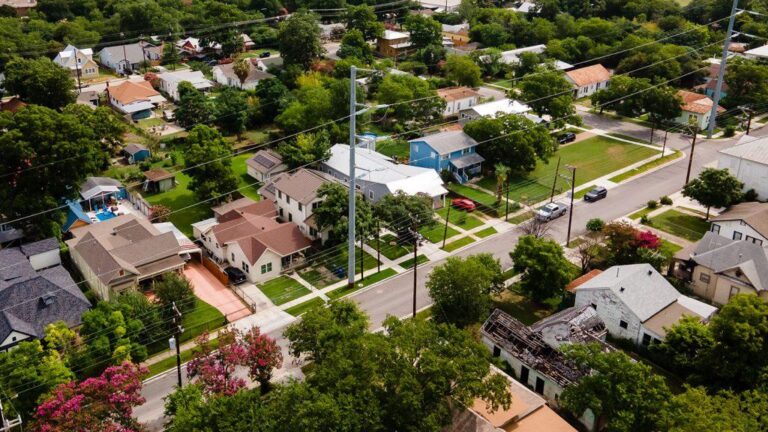San Antonio’s Affordable Housing at Risk Amid Proposed Federal Budget Reductions
Federal Funding Cuts Jeopardize Vital Affordable Housing Programs in San Antonio
San Antonio is on the brink of a deepening housing crisis as proposed federal budget cuts threaten to slash funding for essential affordable housing programs. Critical initiatives such as the Community Development Block Grant (CDBG) and the HOME Investment Partnerships Program—which have long supported the construction, renovation, and rental assistance for thousands of low-income households—face significant reductions.
City officials and housing advocates caution that these cuts could worsen the already dire shortage of affordable homes, disproportionately impacting working families striving to secure safe and affordable living spaces. Recent statistics underscore the urgency:
- More than 30,000 San Antonio households currently depend on federal housing aid to remain housed.
- Rental prices have surged by approximately 15% over the last two years, outpacing local wage increases.
- The vacancy rate for affordable rental units remains critically low, under 5%, signaling extreme scarcity.
| Program | Annual Funding (Current) | Proposed Reduction | Expected Impact in San Antonio |
|---|---|---|---|
| CDBG | $18 million | 25% | Fewer rehabilitation and maintenance projects |
| HOME Program | $12 million | 30% | Decrease in new affordable housing developments |
| Section 8 Vouchers | $22 million | 10% | Longer waiting lists and reduced assistance |
Rising Concerns: Homelessness and Housing Instability Loom Larger
Community advocates and local leaders are sounding the alarm over the potential fallout from these federal budget cuts, emphasizing the risk of escalating homelessness and housing instability. San Antonio’s demand for affordable housing far exceeds supply, and any reduction in federal support threatens to deepen this imbalance.
Vulnerable groups—including low-income families, seniors, and veterans—are particularly at risk of eviction and displacement without continued funding. Experts warn that the social and economic repercussions could be severe, affecting not only individuals but the broader community’s health and safety.
Key concerns highlighted by advocates include:
- Declining rental assistance programs that increase housing insecurity.
- Greater pressure on emergency shelters and social services as homelessness potentially rises.
- Long-term negative effects on public health and neighborhood stability due to unstable housing conditions.
| Program | Current Funding | Proposed Cut | Projected Consequence |
|---|---|---|---|
| Section 8 Vouchers | $50 million | 15% | Approximately 750 fewer families assisted |
| Homeless Assistance Grants | $20 million | 25% | Reduced capacity in shelters and support services |
| Public Housing Development | $30 million | 10% | Delays in new housing construction |
San Antonio Officials Pursue Innovative Funding Strategies to Offset Cuts
In response to the looming federal funding reductions, San Antonio’s city officials and housing advocates are exploring creative financial solutions to sustain affordable housing efforts. Emphasizing collaboration, they are considering a blend of public-private partnerships, local bond measures, and improved grant management to protect vulnerable residents from housing insecurity.
Strategies currently under review include:
- Issuing municipal bonds to finance new affordable housing projects.
- Forging stronger alliances with nonprofit organizations and private developers to expand investment.
- Streamlining grant application processes to optimize fund utilization.
- Adopting flexible zoning regulations to encourage diverse and affordable housing options.
| Strategy | Anticipated Benefit | Implementation Timeline |
|---|---|---|
| Municipal Bonds | Increases capital for housing development | 6-12 months |
| Public-Private Partnerships | Expands funding sources and expertise | Ongoing |
| Grant Process Improvements | Enhances access to available funds | 3-6 months |
| Flexible Zoning Policies | Promotes varied housing types and densities | Immediate |
Forward-Thinking Policies to Safeguard At-Risk Populations
To combat the challenges posed by shrinking federal support, San Antonio’s policymakers and housing advocates have proposed a suite of progressive policy measures aimed at protecting vulnerable residents and fostering long-term housing stability. These initiatives focus on bolstering local rent assistance, strengthening tenant rights, and incentivizing affordable housing development through tax benefits.
Highlighted policy proposals include:
- Creation of a dedicated affordable housing trust fund to consolidate resources from public and private sectors.
- Implementation of zoning reforms that allow for increased housing density while preserving neighborhood character.
- Expansion of supportive services such as workforce training and childcare programs integrated with housing assistance.
| Policy Initiative | Goal | Expected Rollout |
|---|---|---|
| Rent Stabilization Policies | Limit sudden rent increases | 6-12 months |
| Affordable Housing Bonds | Finance construction and rehabilitation | 18-24 months |
| Tenant Legal Assistance Programs | Reduce eviction rates and support tenants | Immediate |
Conclusion: Navigating the Future of Affordable Housing in San Antonio
As federal budget discussions continue, the proposed cuts to affordable housing funding present a formidable challenge for San Antonio’s efforts to ensure housing security for its most vulnerable residents. Advocates warn that diminished federal support could stall vital projects, intensify housing shortages, and deepen socioeconomic disparities. With affordable housing already scarce, the city’s leadership and community stakeholders must innovate and collaborate to safeguard access to safe, affordable homes. The outcome of these budget decisions will have lasting effects on San Antonio’s housing landscape and the well-being of its residents.




